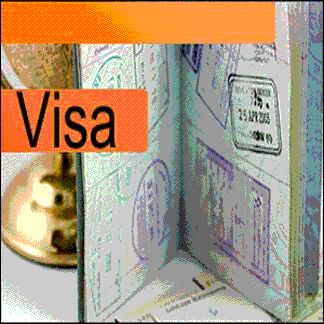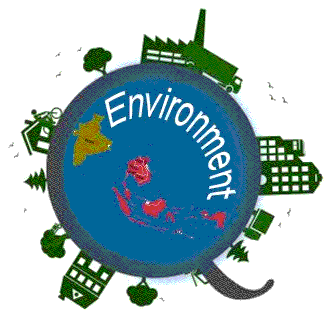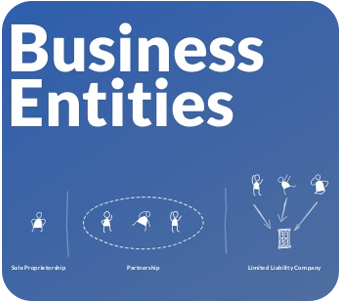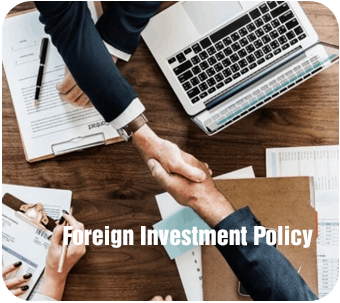Indonesia
Mansour Ahmed Moustafa Arafa
JL. Jagakarsa Raya No.51
Nirwana Residence – D – RT002/RW005 – Jakarta Selatan 12620
Jakarta – Indonesia
Telephone: +6281311473434 / +6281808473434
Email: Indonesia@1stopconsultant.com

Indonesia offers many opportunities to foreign investors. The Indonesian government has recognized the significant role foreign investors can play in the growth and development of the business sector and the national economy. Continuing deregulation and reduction in bureaucracy is creating a wider range of investment activities for foreign investors. In addition, Indonesia’s rich natural resources, large human resource pool and strategic geographical position offer further investment incentives.
Recent legal initiatives that allow for more streamlined investment procedures are evidence of Indonesian policy objectives to address some investor concerns. Further progressive measures taken to attract foreign investment include tax concessions, regional incentives, industry incentives and free trade areas.

Visas and work permits
The Ministry of Law and Human Rights (Departemen Hukum dan Hak Asasi Manusia or MOLHR)
through the Immigration Office (Direktorat Jenderal Imigrasi) regulates visa and immigration matters. Visa applications should be made at an Indonesian diplomatic mission outside Indonesia and work permit applications at an office of the MOLHR in any capital city within Indonesia. Numerous Indonesian migration agencies provide visa and work permit services.
Business visas are valid for 60 days and multiple-visit business visas are available for longer stays of up to two months for each visit and valid for one year from the date of the first arrival. However, business visitors are not able to conclude any business transactions, engage in local employment or perform professional or technical services and are limited to “business investigation”.
The longest temporary resident permit is a limited-stay permit card (Kartu Ijin Tinggal Terbatas or KITAS), which allows foreigners to stay in Indonesia for a period of 12 months (renewable annually). To obtain a KITAS, a foreigner will require the sponsorship of an Indonesian company or representative office.
Foreign investors are authorized to appoint their own management but must use local personnel for other positions, unless qualified Indonesians are unavailable. Work permits must be obtained for expatriate employment. Expatriate employment is permitted on the basis that an Indonesian national will eventually assume the expatriate position and that regular training will be provided to local personnel to ensure this. Temporary resident visas are valid for six months to one year.
Employers are required to obtain a Permit to Employ Foreign Manpower (Ijin Mempekerjakan Tenaga Kerja Asing or IMTA) for foreign employees.

General
The foreign investment company (Penanaman Modal Asing or PMA) is the most common vehicle for foreign investment (see below under PMA). Other vehicles used by foreign investors in Indonesia include:
-
- branch of a foreign company
- representative office
- regional representative office.
Branch of a foreign company
A foreign company wishing to establish a branch in Indonesia will only be authorized to do so in certain circumstances. In practice, only banks and oil and gas companies have been able to establish branch offices. The majority of branch office operations in oil and gas are based on “production sharing contracts”. The production sharing contract is a business agreement between a foreign company and an Indonesian company where revenues are divided according to the agreement and the Indonesian company develops and manages the project.
Representative office
With exceptions (including banks which must apply to Bank Indonesia for a representative office permit), foreign companies may establish a representative office in Indonesia after obtaining a license from the Department of Trade (Departemen Perdagangan) or from BKPM. This type of business entity cannot conduct business or receive income and it does not have the authority to contract on behalf of its foreign parent. A representative office is restricted to promotional, quality control or procurement work. This type of business entity is a good option for a foreign corporation testing the Indonesian market or for raising local awareness of its goods and/or services.
Regional representative office
Application for the establishment of regional representative offices (Kantor Perwakilan Wilayah Perusahaan Asing) must be made to BKPM. Multinational corporations may establish regional representative offices.
Foreign investment company Indonesian law recognizes three (3) forms of companies:
1. General Indonesian companies (Perseroan Terbatas Biasa), these are 100 per cent Indonesian-owned and subject to the MOLHR company regulatory regime.
2. Domestic capital investment companies (Penanaman Modal Dalam Negeri or PMDN), these are 100 per cent Indonesian-owned, able to take advantage of taxation facilities, and subject to the MOLHR and the Capital Investment Coordinating Board (Badan Koordinasi Penanaman Modal or BKPM) company regulatory regimes.
3. PMA companies (Penanaman Modal Asing), these are wholly foreign-owned or may be established as a joint venture and partly owned by foreigners and Indonesians. A former limitation of 30 years on business licenses for PMA companies has recently been abolished and a business license is generally perpetual, subject to the PMA company continuing to operate its business, able to take advantage of taxation facilities, and subject to the MOLHR and BKPM company regulatory regimes.
BKPM must approve most foreign investments in Indonesian companies. Where the PMA is 100 per cent foreign-owned, previous foreign investment rules required divestment of an unspecified percentage of shares to Indonesian interests within 15 years (as a rule of thumb, 5 per cent was considered acceptable).
The Foreign Investment Law No. 25 of 2007 (Undang Undang Penanaman Modal Asing) abolishes the divestment requirement. However, it has not yet been settled as to whether this applies only to newly incorporated companies or extends to companies which were incorporated under the previous regime.
PMA companies are permitted to establish subsidiaries. However, the parent PMA company cannot merely act as a “holding company” and must conduct a business in its own name.
PMA and PMDN companies are subject to regulation by both the MOLHR and the BKPM and industry-specific company regulatory regimes. As such, the PMA company, as distinct from general Indonesian companies, is subject to different obligations and enjoys different incentives, although the stated policy of the government is to eventually have one regulatory regime for all companies.
The PMA company may take advantage of taxation facilities offered to PMDN and PMA companies (this relates mainly to exemptions from duties on import of equipment, referred to as “Master List” equipment), and must submit a report on its business activities (Laporan Kegiatan Penanaman Modal or LKPM) to BKPM every year.
The Foreign Investment Law contemplates that certain tax benefits conferred upon PMA and PMDN companies will now be extended to general Indonesian companies.
In December 2009, BKPM issued a regulation which is intended to make BKPM a “one-stop shop” with respect to licensing of PMA companies. In other words, BKPM will be able to issue both general and industry-specific business licenses, rather than a PMA company being required to approach industry-specific departments for additional licenses.

General
Foreign investment is encouraged as an important step towards the revitalization of the Indonesian economy and continued development of the country in general. Foreign and domestic investment is administered by the BKPM. The BKPM Chairperson is also the Minister of State for Mobilizing Investment Funds and a member of Cabinet. The MOLHR is the primary board that regulates the Company Law and the Foreign Investment Law. These two pieces of legislation are of primary importance to foreign investors. The BKPM must approve newest foreign investment and expansion of existing projects. Foreign investment and expansion of existing projects in the industries of oil and mining, banking and non-bank financial institutions need the approval of industry-specific regulating bodies.
Foreign Investment Law
Indonesia’s previous Foreign Investment Law No. 1 of 1967 established the BKPM (and later its regional offices) to approve foreign and direct investment for all industries except (among others) the banking, insurance, mining, oil and gas industries where investment approval must be sought from other relevant government departments. The BKPM and its regional offices liaise with MOLHR, the Department of Finance and the Department of Manpower and Transmigration (Departemen Tenaga Kerja dan Transmigrasi) as well as regional and local authorities in respect of investment by foreigners and locals.
Regional autonomy laws enacted in 1999 have complicated the current situation with the BKPM and provincial and regency governments now both being authorized to approve foreign investment, which undermines the one-stop-shop concept of the BKPM (among others). In other words, besides processing approval in BKPM in Jakarta, investors now also have to process other investment-related licenses in regional BKPM offices where the investment will be located. If an investment is located in a cross-border region which involves more than two regions, investors must deal with all respective local governments, each of which may require different application procedures.
The new Foreign Investment Law came into effect in April 2007. Some of the key features of the new law are:
-
- tax incentives and improved property rights for Indonesian investment companies, both domestic and foreign-owned
- equal treatment of foreigners and locals, providing for compensation at market value in the event of nationalization of assets, and granting rights to transfer and repatriate profits
- a host of government incentives (if certain criteria are met) such as reductions in corporate tax, exemptions and reductions in import duties and reductions in property tax for various qualifying investments such as projects in labor-intensive industries, infrastructure, promotion of technology transfer, and involving scientific research and innovation
- granting stronger property rights to foreign investors; for example, subject to satisfaction of certain specified requirements, longer land title periods such as: The Right to Cultivate (Hak Guna Usaha) for up to 95 years (previously 35 years); and the Right to Build (Hak Guna Bangunan) for up to 80 years (previously 50 years)
- prohibition against nominees holding shares on behalf of other parties
- removal of the requirement for foreign investors to divest a portion of their shareholdings in Indonesian companies after 15 years
- easier immigration procedures for obtaining residence permits and multiple entry visas
- an enhanced role for BKPM which it is proposed will now serve as a one-stop licensing and service center for all investors
- the introduction of special economic zones (Kawasan Ekonomi Khusus) to accelerate economic development in certain regions.
Restrictions on investment
The Indonesian government determines industries closed to foreign investment through the Negative Investment List (Daftar Negatif Investasi), which in theory is to be issued every three years unless revised earlier. The previous Negative List (Presidential Regulation Number 77 Year 2007 Regarding List of Business Fields Closed and Open to Investments on Certain Conditions as amended by Presidential Regulation No.111/2007) was recently replaced by a new Negative List issued on 25 May 2010 (Presidential Regulation No. 36/2010). This Presidential Regulation specifies business lines which are closed absolutely to all private investment, closed absolutely to foreign investment and open to foreign investment subject to restrictions. The new Negative List opens up certain industries to greater foreign investment whilst reducing or closing foreign investment in other sectors. The structure of the new Negative List has also changed. Under the new Negative List, prohibited or restricted activities are now categorized by reference to “sectors” as opposed to “business lines” under the old Negative List. Subject to the transitional provisions discussed below, the New Negative List applies to all investment in Indonesia on and from 25 May 2010.
Significantly, the new Negative List:
-
- introduces new categories in respect of entities carrying out geothermal activities, including Geothermal Drilling Services, with a maximum 95 per cent foreign ownership, and Geothermal Power Plants, with a maximum 95 per cent foreign ownership
- introduces a new category of Internet Service Provider with a maximum foreign investment of 49 per cent
- increases foreign investment limits in respect of some categories of construction from 55 per cent to 67 per cent. However, there are a number of categories, including Construction Consultancy, which retain the maximum limit of 55 per cent foreign shareholding as set out in the old Negative List ·continues to prohibit both domestic and foreign investment in the alcohol production industry and gambling and casinos.
The new Negative List contains transitional provisions which, whilst somewhat unclear, provide that, to the extent that a company with foreign investors has already received an investment license from BKPM, the shareholders will not be required to divest shares to comply with the new restrictions on foreign investment. Our interpretation of this is that if a PMA has already obtained a permanent business license (Izin Usaha Tetap) (IUT), shareholders will be permitted to hold shares in accordance with the limits imposed under that IUT. However, if the PMA increases its capital and, as a result, its foreign investment exceeds the maximum limit imposed by its existing IUT, then within two years the foreign investor(s) must divest to the limit imposed by the existing IUT.
Nominee arrangements
Nominee arrangements have traditionally been commonly used in Indonesia where foreign investors wish to invest in areas that are closed to foreign investment. The concept of “trust” or “beneficial ownership” is not specifically recognized under Indonesian law. It has always been unclear, therefore, whether an Indonesian court would uphold a written agreement providing that an Indonesian shareholder holds shares on trust for a foreign investor. The idea of nominee arrangements is that the foreign investor obtains as much control as possible and is put in a position, insofar as it is possible, comparable to that of a registered shareholder.
The Foreign Investment Law now prohibits agreements whereby one party declares that it holds shares on behalf of another. This is clearly an attempt to abolish nominee structures. It is not yet clear whether this will result in loan/security structures, which are designed to have the same effect as nominee arrangements but do not refer expressly to one party holding shares on behalf of another, being struck down.
Franchising in Indonesia
The concept of franchising has been known in Indonesia since the 1970s, although laws on franchising were enacted only in recent years. In the early 1990s there was a boom for foreign franchisors in Indonesia. In the absence of any Indonesian franchise laws, however, foreign laws were used in franchise agreements, which were perceived as both unfair and at times incomprehensible to Indonesian franchisees and which Indonesian judges were reluctant to apply in the event of disputes. Further, in a highly bureaucratic society where multiple licenses and permits may be required from various government departments for almost any conceivable form of business activity, some confusion existed as to which department had ultimate control over a franchise arrangement. As a result, the government enacted the first franchise law in 1997. In 2007, the Franchise Law was changed with the introduction of Government Regulation No. 42 of 2007, which has since been supplemented by the Regulation of the Minister of Trade No. 31/ M-Dag/Per/8/2008.
The objectives of this law are to establish certainty, protection for Indonesian franchisees and, where possible, to foster local business development. While the Franchise Law now requires a franchise agreement to be executed in the Indonesian language, governed by Indonesian law and to include specific matters, ultimately the commercial arrangements remain a matter for negotiation between the parties. To prevent exploitation of a local franchisee, however, the Minister of Trade and Industry is granted authority under the Franchise Law to request changes be made to a franchise agreement. The elucidation to the Franchise Law provides that the franchisor is obliged to “nurture, guide and train” the franchisee. Assistance and facilities offered to the franchisee by the franchisor include financial assistance, marketing assistance, book-keeping assistance and work guidelines.
Foreign franchisors are now required to register a prospectus with respect to the franchise at the Department of Trade before execution of the franchise agreement (which replaces a former disclosure statement requirement). Information about the franchisor and its business including the profit and loss statement for the last two years and experience and details of past and current franchise arrangements must be disclosed as well as details of proposed technical assistance and intellectual property rights. Evidence of the identity of corporate franchisors obtained from the authorities in the country of incorporation must also be provided. The disclosure requirement is intended to provide particular protection to the franchisee as opposed to the franchisor.
The Department of Trade and Industry will issue a Certificate of Franchised Business Registration once all disclosure and documentary requirements have been fulfilled. While the Department now has ultimate authority in relation to the registration and deregistration of franchises, in practice multiple licenses must still be obtained by franchisees from various government departments with jurisdiction in the area of the franchisee’s business. On termination of a franchise arrangement, the Department will not deregister a franchise until it has received a written statement signed by the franchisor and franchisee confirming that all obligations between the parties have been settled.
Under the Franchise Law, the franchisors are required to give priority to small and medium-scale enterprises as franchisees and sub-franchisees and/or suppliers. Franchises are only permitted in provincial capitals and other particular cities or places in second-level regions as the Minister of
Trade and Industry will stipulate from time to time, which is intended to promote small industry.
Government initiatives and incentives
A broad range of deregulatory and de-bureaucratization measures have been taken by the Indonesian government to enhance the investment climate. Licensing requirements have been streamlined and a new raft of legislation has addressed various long-standing concerns of the business community and provides new legal certainty in areas such as franchising, intellectual property and bankruptcy. Furthermore, the Negative List has been amended, increasing the number of sectors open to foreign investment. Import and export sectors now enjoy reduced tariffs and duty exemptions in certain circumstances. There is no formal minimum capital requirement for company incorporation in Indonesia, although in practice the BKPM will undertake its own examination of the capital adequacy of the project and generally requires a minimum issued capital of US$250,000. There is unlimited transfer of foreign capital and, as discussed above, 100 per cent foreign-owned companies are now permitted.
A number of governments provide investment guarantees to foreign investors in their countries. In most cases, these guarantees cover compensation in case of nationalization or expropriation, damages or losses caused by incidents of war, revolution or insurrection and payments for any approved remittance pursuant to the investment in case of non-convertibility of currency of the host country.
To provide security for foreign investment, the government of Indonesia has concluded investment guarantee agreements with ASEAN governments. In addition, Indonesia has signed bilateral investment promotion and protection agreements with 60 countries, namely: Argentina, Algeria, Australia, Bangladesh, Belgium, Luxembourg, Bulgaria, Cambodia, Chile, People’s Republic of China, Croatia, Cuba, Czech Republic, Denmark, Egypt, Finland, France, Germany, Hungary, India, Iran, Italy, Jamaica, Jordan, Kyrgyzstan, Laos, Malaysia, Morocco, Mauritius, Mongolia, Mozambique, the Netherlands, North Korea, Norway, Pakistan, the Philippines, Poland, Qatar, Romania, Singapore, Slovak Republic, South Korea, Spain, Sri Lanka, Sudan, Suriname, Sweden, Switzerland, Syria, Tajikistan, Thailand, Tunisia, Turkmenistan, Turkey, Ukraine, United Kingdom, Uzbekistan, Venezuela, Vietnam, Yemen and Zimbabwe.
To create a favorable international investment climate, Indonesia has also signed multilateral agreements to promote foreign direct investment in Indonesia. Indonesia is now a member of the Multilateral Investment Guarantee Agency, which will protect investment against various political risks. To deal with foreign investment disputes, Indonesia has become a signatory member of the International Centre for Settlement of Investment Disputes and is a party to the New York Convention on Recognition and Enforcement of Foreign Arbitral Awards.

Tax system
Indonesia’s taxation system is based on broad-based value-added tax on revenues combined with a self-assessment system. Taxes are imposed at regional and national levels. The Indonesian tax system classifies taxes into:
-
- national taxes: including income tax, value-added tax, sales tax on luxury goods, stamp tax, property tax (on land and buildings), and fiscal departure tax
- regional taxes: including development tax, motor vehicles tax, other minor taxes (household, entertainment, road, advertisement, radio and television taxes)
- customs and excise taxes: including export duty, import duty, tobacco, sugar, beer and alcohol, and gasoline taxes.
The Ministry of Finance and the Director General of Taxation regulate compliance with the main taxation rules. Unfortunately, the Tax Court, which is the court of appeal on tax matters, does not make its decisions readily available. The Tax Court is a judicial institution with jurisdictional authority for taxpayers or tax guarantors seeking settlement of tax disputes. A request for re-examination of a decision of the Tax Court by the Supreme Court will only be granted where certain conditions are fulfilled.
A Large Taxpayer Tax Service Office was established in Jakarta in July 2002 and responsibility for “large” taxpayers were transferred to this office. It is common practice for the financial year of companies to follow the calendar year.
In September 2008 the Parliament passed a new income tax law which reduced the number of income tax brackets (from five to four) and lowered the maximum rate of income tax from 35 per cent to 30 per cent (for salaries of Rp500 million or greater). In addition, the then current corporate tax rates of 10 per cent, 15 per cent, and 30 per cent disappeared in 2009 in favor of a single corporate tax rate of 28 per cent. In 2010, this corporate tax rate fell to a flat 25 per cent.
Income taxes
The wide definition of income tax in Indonesia’s taxation law applies equally to both individuals and businesses operating through corporate structures. This definition of income tax includes such income sources as:
-
- wages and salaries
- interest and dividends
- compensation for work performed
- compensation for use of assets
- commissions and bonuses
- rent
- pensions and royalties
- lottery prizes and awards
- bonuses and awards
- foreign exchange gains
- insurance and reinsurance premiums
- capital gains on property.
-
- resident taxpayers: this includes companies, partnerships and cooperatives domiciled or incorporated in Indonesia. If a foreign business has a “permanent establishment” (that is, an “establishment regularly used to carry on business in Indonesia by an organization or enterprise not set up or domiciled in Indonesia”), it is considered a resident for tax purposes. Any individual present in Indonesia for more than 183 days in any 12-month period or a person who intends to reside in Indonesia is also classified as a tax resident of Indonesia
- non-resident taxpayers: a non-resident taxpayer is one who receives benefit from activities in Indonesia. Double tax treaties that Indonesia has signed with various countries can provide some relief.
Withholding taxes
Withholding taxes apply to:
-
- payments made for a range of services performed within Indonesia
- payment of fees to partnerships or individuals
- payment to offshore funds (these include interest, royalties, technical service fees, dividends)
- certain classes of income, including transfer of title to land/buildings, rent paid on land/ buildings and income from construction and construction consulting services.
Other taxes
Other taxes of relevance to foreign investors include:
-
- land and building tax which is an annual tax on land, building and permanent structures. Taxpayers are those with the rights over the land or those who possess or control structures to obtain benefit from them
- value-added tax applies to the supply of most goods and services in Indonesia
- stamp duty on execution of certain documents (this is nominal and not an ad valorem tax)
- foreigners’ tax, which is payable by companies for expatriate employees
- fiscal tax on departure from the country (currently Rp1 million on each departure of Indonesians and foreign residents). From 2009, any person with an Indonesian tax file number (Nomor Pokok Wajib Pajak (NPWP)) is exempted from fiscal exit tax.

Workplace relations
General
A new labor law came into effect in March 2003 in the form of Labor Law No. 13 of 2003. Additional laws and Presidential and Ministerial Decrees have been passed to implement the new regime.
The Indonesian government is working closely with the International Labor Organization (ILO) to resolve Indonesia’s labor problems. The government is pushing for greater foreign investment to increase business activities in Indonesia and consequently this may provide further employment opportunities. According to the Representative Office of the ILO in Indonesia, most of the provisions of the Labor Law have complied with the ILO’s Conventions, including prohibition of discrimination in the workplace and employing child labor.
Regional autonomy laws have also had a major impact on labor relations. The standard minimum wage has been raised in each province on a more frequent, almost annual basis. This has a significant impact on companies in the import and export sectors, which rely on wage specific rates to maintain international competitiveness.
Minimum rates of pay
Minimum rates of pay are decided by the Department of Manpower and Transmigration on the basis of regional considerations. Therefore, wages vary significantly according to industry and location within Indonesia. Companies are free to compensate above the set minimum wage level. It is commonplace for the employers and employees to negotiate individual and/or collective labor agreements.
The Labor Law provides for a six-day week with a total of 40 hours. The Ministry of Manpower and Transmigration can permit, upon request, a 40-hour, five-day week and can also provide permits for overtime.
Statutory contributions
There is no social security system in Indonesia. Therefore, the employer is the prime provider of social welfare for employees in Indonesia. Employees receive a number of fringe benefits that add to labor costs significantly. Employees are paid a compulsory annual allowance (Tunjangan Hari Raya or THR) at Christmas or Hari raya Lebaran holiday period. Employers generally provide medical care for employees and their families and may also subsidize employee housing. A cash allowance for meals, transportation and work clothing is also a common practice.
Employers of all national, private, foreign and government companies with a labor force in excess of 10 or with a monthly payroll of rp1 million or more must register their employees with Jaminan Sosial Tenaga Kerja (Jamsostek), a state-owned company, which provides a Worker’s Social Security Programme. Jamsostek manages compensatory payments in case of death and accident to employees or surviving family members. Contributions to Jamsostek are made by the employee and by the employer. They consist of accident insurance, retirement, death insurance and medical care insurance. The latter may, however, be taken out by the company with another insurance company. Foreign employees are not required to be included under the Jamsostek programme.
Employers in various high-risk industries, including mining, construction, fisheries and plantations are required to set up compensation schemes for payments to employees or their families to cover employee injuries incurred during the course of their duties.
The Safety Act requires the employer to maintain facilities to ensure the health and safety of employees and specifically to prevent industrial accidents and to provide protection against fires and defective building structures.
Leave entitlements
Maternity leave with full pay is provided for female employees only up to a three-month period which can be taken before or after birth.
Employees are entitled to a minimum leave period of 12 working days with full wages after 12 months’ continuous service. This increases to 20 days after six years’ service. Whilst the Labor Law allows for forfeiture of the paid holiday entitlement if it is not taken within six months of entitlement, it is not common for foreign companies to enforce this forfeiture sanction.
Expatriate employees
In order for a PMA company to employ an expatriate, the company must prepare an employee utilization plan (Rencana Penggunaan Tenaga Kerja Asing or RPTKA) for submission to BKPM for validation. On the basis of the validated BKPM work permit and letter of recommendation for the foreign personnel, the regional office of the BKPM issues a work permit/license for the employment of expatriates (Ijin Kerja Tenaga Asing or IKTA).
Termination of employment
The Labor Law regulates the procedures for, and compensation payable to, permanent employees of companies in Indonesia on termination of their employment.
The categories of employment termination include:
-
- voluntary resignation of an employee
- termination of employment by an employee due to employer’s fault
- termination of employment due to an employee’s fault.
The law provides for three categories of compensation to employees on termination of payment: service payments, severance payments and “other” compensation. “Other” compensation will be paid if the employer has provided any housing, medical or relocation benefits or if there are any outstanding entitlements for unused annual leave or unused long service leave during the employee’s term of employment.
The formal procedure for termination of the employment of an employee starts with initial negotiation between the employer and employee or union. If agreement is reached, it is not necessary for the Ministry of Manpower and Transmigration and/or the Industrial Relations Court to get involved. If agreement is not reached, the termination must be consented to by the Ministry of Manpower, which consent may be appealed to the Industrial Relations Court (formerly a system of dispute settlement tribunals). The new Industrial Relations Court was established in January 2006. The new system aims to reduce the costs of, and speed up, the former tribunal system. However, some concerns have been expressed that the forum for industrial dispute resolution will move from the control of government-appointed mediators to the judiciary.

Dispute resolution
Background
Foreign court judgments are not enforceable in Indonesia unless a reciprocal enforcement treaty exists between Indonesia and the country in which the foreign judgment is handed down. No such treaties are currently in force. Accordingly, a judgment handed down by a foreign court against an Indonesian company would be enforceable against the Indonesian company only to the extent that the Indonesian company has assets located in the jurisdiction of the judgment (against which the judgment may be satisfied).
Indonesian governing law
The most practical choice of law and jurisdiction in agreements would be the laws and courts of Indonesia. However, the judicial process in Indonesia is notoriously slow and expensive, and judges tend to be unpredictable in their decision making. As an alternative to Indonesian law and jurisdiction, it is possible to state that:
-
- the laws of Indonesia govern the agreement
- disputes are to be referred exclusively to foreign arbitration and may not be referred to Indonesian courts for resolution (see below).
If an agreement is governed by Indonesian law, certain standard provisions need to be included (for example, an express waiver of certain provisions of the Civil Code 1847 would be required to prevent the need for a court order to allow early termination of an agreement).
Foreign governing law
While theoretically possible, in practice Indonesian courts are reluctant to apply foreign law (in the event that an agreement stated it was governed by a foreign law but disputes were to be referred to Indonesian courts for resolution). We are aware of some cases where an Indonesian party to an agreement governed by foreign law has referred a dispute to an Indonesian court despite the governing law clause, and the judge has accepted jurisdiction but applied Indonesian law.
Foreign arbitration
In contrast to foreign court judgments which are not enforceable in Indonesia, Indonesia is a party to the New York Convention on the Recognition and Enforcement of Foreign Arbitral Awards and, accordingly, an arbitral award handed down overseas may be enforced in Indonesia provided that:
-
- the country in which the award is handed down is also a party to the New York Convention
- the award does not contravene national order
- the District Court has provided an execution order in relation to the award.
The likelihood of the District Court refusing to provide an execution order in relation to a foreign arbitral award is reduced where the agreement in question is governed by Indonesian law. A recent court decision has raised questions as to how foreign arbitral awards are to be treated in Indonesia (see below).
Issues with enforcement
Indonesian judges have indicated a recent tendency to question foreign arbitral awards in relation to which application has been made for enforcement through the District Court. In a particularly controversial recent case, the Central Jakarta District Court overruled the decision of a Swiss arbitration panel ordering the state-owned oil and gas company Pertamina to pay US$261 million to the local independent power producer, Karaha Bodas (which is controlled by American interests). The District Court claimed that the Swiss arbitration panel had overstepped its authority in ordering Pertamina to pay compensation. The decision is now being challenged on the basis that only Swiss courts have the right to annul the ruling.
As a result of this case, the issue of governing law and dispute resolution to be included in agreements is now a little uncertain. We usually recommend that, unless a client has strong reasons to the contrary, such agreements be governed by Indonesian law because of the issues referred to above.

Consumer protection
Indonesia’s first Consumer Protection Law No. 8 of 1999 (Undang Undang Tentang Perlindungan Konsumen) came into force in April 2000. The Consumer Protection Law sets out basic rights of consumers (including the right to bring class actions) and the obligations of business entities (manufacturers, distributors, retailers and importers) with respect to the sale of their products and services in Indonesia. The Consumer Protection Law provides that business entities must:
-
- include an expiry date or “best before” date on their products
- follow “halal” production processes (that is, processes in accordance with or permitted under Islamic Shari’a law) for products with such “halal” labels
- include labels on their products stating the name of the product, size, weight, volume (gross or net), composition, directions for use, production date, details of any side effects, name and address of the “business entity” (it is not clear whether this refers to the manufacturer, the distributor or some other entity) and other information required to be included on the label by law
- provide information in Indonesian relating to the use of the products
- ensure that their products comply with the information contained on the product labels and any required standards under the general law.
Business entities are prohibited from offering, promoting or advertising particular products or services involving the provision of misleading or false information to consumers. When advertising, promoting or offering their products or services for sale, business entities are also prohibited from directly or indirectly disparaging other goods and/or services. In addition, business entities are prohibited from using descriptions such as “safe”, “not harmful”, “not risky” or “no side effects” without including a detailed explanation of these warranties. Pursuant to the Consumer Protection Law, advertisers may be liable for all consequences arising from any false or misleading advertising carried out by them.
Under the Consumer Protection Law, a local importer (other than an agent or foreign representative of the foreign manufacturer) will be treated the same as a manufacturer. In practice, this means that a consumer who suffers damage arising from the purchase of a defective product can make a claim against the importer and the importer will be liable to the consumer for any such damage.
A violation of the Consumer Protection Law may result in a fine of up to Rp2 billion or imprisonment of a violating company’s management for up to five years. In light of the harsh sanctions that may be imposed under the Consumer Protection Law, it is important for foreign companies to be fully aware of their obligations and the restrictions that now apply concerning the sale of products and services in Indonesia.

Intellectual property rights
Indonesia is a signatory to the Trade Related Aspects of Intellectual Property Rights Agreement (TRIPS), an agreement scheduled to the General Agreement on Tariffs and Trade (GATT) Agreement of the World Trade Organization. As such, Indonesia has enacted a raft of new legislation from 1997 onwards in order to enhance Indonesia’s compliance with the TRIPS requirements.
The problem with enforcement of intellectual property rights in Indonesia comes from a number of sources – industrial, technical, social, cultural and legal. The Indonesian government is hoping to tackle the issue of enforcement through new laws. On the positive side, there is a general coherence amongst the laws in terms of the definitions, alternative dispute settlement procedures, civil proceedings and criminal sanctions available for intellectual property rights enforcement. Although enforcement of intellectual property rights is, at present, difficult, it is hoped that over time Indonesia will create a comprehensive and structurally sound intellectual property rights protection regime. Indonesia also has substantial interest in providing protection for indigenous intellectual property and, to a lesser extent, geographical indicators.
The Directorate General of Intellectual Property Rights (Direktorat Jenderal Hak Atas Kekayaan Intelektual) under the MOLHR administers the enforcement of intellectual property rights in Indonesia. Registration is the basis upon which intellectual property rights in Indonesia are claimed and it is at this point that the greatest reform has been made. In theory, a new streamlined procedure should result in significant reductions in registration times – however, this has not yet happened in practice.
Enforcement of intellectual property rights is now provided through the Commercial Court. The Commercial Court was initially established for bankruptcy proceedings and the perception of the court is of speedy and effective, if not more expensive, legal proceedings. However, in practice, intellectual property rights enforcement is usually through more practical remedies. Infringements can sometimes be remedied by a “cease and desist” letter and/or with the follow-up of a notice published in newspapers of the intellectual property owner’s intention to take further enforcement action.
Copyright
The Indonesian Copyright Law No. 19 of 2002 (Copyright Law) came into effect in July 2003. The reasons for replacing the old regime with the new Copyright Law were that the old laws had not accommodated TRIPS in terms of encouraging the development of intellectual works originating from Indonesian art and other cultural sources and there was a need to distinguish the position of copyright from that of related rights in order to give clearer protection to relevant intellectual works.
The Copyright Law distinguishes between copyright and related rights in terms of the period of protection and penalties. “Related rights” which are covered by the new Copyright Law consist of exclusive rights possessed by a licensed agent, a sound recording producer or a broadcast institution.
While the period of protection of copyright is granted for 50 years, the protection period for related rights of a licensed agent and a sound recording producer is 50 years, and 25 years for a broadcasting institution. Different civil and criminal penalties apply to infringement.
Matters covered by the new Copyright Law include:
-
- protection of databases
- usage of wire or wireless devices, including the Internet, to operate optical disc products through audio, audio-visual and other telecommunication devices
- court injunctions
- a time limit for settling copyright disputes in the Commercial Court and on appeal to the Supreme Court
- electronic information management and technological control device rights
- protection for hi-tech products
- penalties for violation of related rights
- a penalty for the reproduction of computer programs for illegal and unlawful commercial purposes.
Indonesia ratified the World Intellectual Property Organization Phonograms and Performance Treaty which came into effect in 2002. This treaty prohibits the unauthorized exploitation of recorded or live performances on the World Wide Web.
Domain names
In April 2008 Indonesia introduced its first electronic information and transactions law dealing with electronic commerce, domain names and related intellectual property rights (see further below).
Currently, domain name registration is available at the Indonesian Internet Domain Name Management Organization (PANDI), which has the authority to assign, check and reject domain name registration in Indonesia.
Indonesia has several domain name registrations including: ac.id, sch.id, co.id, net.id, go.id, mil.id, or.id and web.id. To obtain a “co.id” domain name requires the applicant to hold an Indonesian taxpayer registration number and trading license number. However, the documentation for obtaining a “web.id” domain name does not rely upon the applicant having a local presence in Indonesia. A foreign company could register the “web.id” domain name so long as they have a “local administrative contact address”.
Patents
The Patent Law No. 14 of 2001 provides, amongst other things, that petty patents are limited to tangible items only and a patent on a process must be in the nature of a full patent. Patents are valid for 20 years and are not renewable. Simple patents are valid for ten years and are also not renewable.
Holders of a patent have the right to grant licenses to other parties based on a license agreement. A license agreement must be registered and announced in the Official Gazette of Patents.
Trademarks
The Trademark Law No. 15 of 2001 addressed a primary concern of foreign investors as it provided for further legislative measures to be taken to stop use of a brand name where the name is registered as a trademark in another country. The Trademark Law prevents the registration in Indonesia of trademarks which are registered and “well-known” overseas where the applicant party is acting in bad faith.
Trademark registrations are valid for ten-year periods and are renewable. Assignment of a trademark must be in writing, confirming that the trademark to be assigned will be used for the trade of goods and services. Goodwill, reputation or other related aspects of the trademark may also be assigned.
The Trademark Office accepts applications for trademarks with “priority rights” where the trademark has been registered in another country under the 1883 Paris Convention for the Protection of Industrial Property and the 1994 GATT. Priority application must be submitted within six months of the filing date of the application for registration of the trademark in the other country.
The Trademark Law requires trademark licenses to be registered. However, at the time of writing, no system had been established within the Trademark Office for such registration.
The registered owner of a trademark may submit a claim for damages against an infringer and apply for interlocutory injunctions. The Trademark Law also provides for alternative dispute resolution, including arbitration.
Trade secrets
Indonesia’s first law on trade secrets came into effect in December 2000. Trade secrets refer to information not identifiable by the public in technology and/or business fields which has economic value (that is, commercial or profit-making value). The information must be “secret”, that is, only identifiable by certain parties, and must have been disclosed in circumstances where confidentiality was intended to be protected.
Trade secret holders have sole right to use, to license and to prohibit other parties from using or revealing the trade secret. Ownership of trade secrets may change by inheritance, grant, written agreement or assignment. Under the Trade Secrets Law, changes in ownership of trade secrets licenses must be registered and announced in the official Gazette of Trade Secrets. However, at the time of writing, the registration and announcement procedures had not been established.
Industrial designs
The Indonesian Law on Industrial Designs No. 31 of 2000 refers to the creations of forms, configurations or compositions of lines or colors, or combinations thereof in the form of two or three dimensions. Industrial designs may only be registered where there has been no previous disclosure of the design in exhibitions in Indonesia, the design has not been publicly exhibited and is not already being used in Indonesia by designers in the framework of trial assets for educational, research or development purposes.
Industrial design rights are granted for ten-year periods. The industrial design right holder has exclusive rights to prohibit other parties from making, selling, exporting, importing and distributing goods using the industrial design right in question without their approval. Transfers and licenses of industrial design rights must be registered and recorded in the Official Gazette of Industrial Designs and registered at the office of the Directorate General of Intellectual Property Rights.
Technical assistance agreements
Technical assistance agreements are entered into in order to transfer expertise and valuable information on the making and marketing of various manufactured goods. The owner of certain patent or trademark rights relating to particular licensed products may provide a license to a subsidiary body or franchise partner. Information generally shared is the technically and commercially useful information necessary for the manufacture and sale of a particular licensed product. Information usually includes technical information, know-how, plant layout, drawings, specifications and treatment of materials relating to the manufacture and sale of a particular licensed product.
Technical assistance may also take the form of coordination and liaison services between the parties, visits of technical officers and other communications.
E-commerce
In April 2008 Law No. 11/2008 Regarding Electronic Information and Transactions (E-Commerce Law) was enacted to regulate matters relating to information and electronic transactions in all electronic forms. The E-Commerce Law is the first piece of legislation that regulates electronic transactions in Indonesia.
The E-Commerce Law sets out the legal basis for electronic transactions, including defining terms such as information technology, computers, electronic information, electronic contracts, electronic signatures, and electronic certificates. The E-Commerce Law prescribes a method for determining when electronic information is deemed to have been transmitted and received. It also provides for the creation of a certification body which can audit and issue certificates regarding the reliability of parties engaged in, and products the subject of, electronic trading.
The E-Commerce Law applies to all electronic transactions and all persons or institutions involved in electronic transactions (that is, local and foreign subjects), and ensures those transactions are legally protected. For the first time, electronic evidence will be able to be used in court. The E-Commerce Law also covers registration and use/misuse of domain names, the protection of certain electronic information as intellectual property and the use by electronic media of information that affects an individual’s right to privacy. Not surprisingly, it also prohibits dissemination of material relating to pornography, gambling or violence by means of computer or electronic systems.

Text coming soon

Indonesia offers many opportunities to foreign investors. The Indonesian government has recognized the significant role foreign investors can play in the growth and development of the business sector and the national economy. Continuing deregulation and reduction in bureaucracy is creating a wider range of investment activities for foreign investors. In addition, Indonesia’s rich natural resources, large human resource pool and strategic geographical position offer further investment incentives.
Recent legal initiatives that allow for more streamlined investment procedures are evidence of Indonesian policy objectives to address some investor concerns. Further progressive measures taken to attract foreign investment include tax concessions, regional incentives, industry incentives and free trade areas.

Visas and work permits
The Ministry of Law and Human Rights (Departemen Hukum dan Hak Asasi Manusia or MOLHR)
through the Immigration Office (Direktorat Jenderal Imigrasi) regulates visa and immigration matters. Visa applications should be made at an Indonesian diplomatic mission outside Indonesia and work permit applications at an office of the MOLHR in any capital city within Indonesia. Numerous Indonesian migration agencies provide visa and work permit services.
Business visas are valid for 60 days and multiple-visit business visas are available for longer stays of up to two months for each visit and valid for one year from the date of the first arrival. However, business visitors are not able to conclude any business transactions, engage in local employment or perform professional or technical services and are limited to “business investigation”.
The longest temporary resident permit is a limited-stay permit card (Kartu Ijin Tinggal Terbatas or KITAS), which allows foreigners to stay in Indonesia for a period of 12 months (renewable annually). To obtain a KITAS, a foreigner will require the sponsorship of an Indonesian company or representative office.
Foreign investors are authorized to appoint their own management but must use local personnel for other positions, unless qualified Indonesians are unavailable. Work permits must be obtained for expatriate employment. Expatriate employment is permitted on the basis that an Indonesian national will eventually assume the expatriate position and that regular training will be provided to local personnel to ensure this. Temporary resident visas are valid for six months to one year.
Employers are required to obtain a Permit to Employ Foreign Manpower (Ijin Mempekerjakan Tenaga Kerja Asing or IMTA) for foreign employees.

General
The foreign investment company (Penanaman Modal Asing or PMA) is the most common vehicle for foreign investment (see below under PMA). Other vehicles used by foreign investors in Indonesia include:
- branch of a foreign company
- representative office
- regional representative office.
Branch of a foreign company
A foreign company wishing to establish a branch in Indonesia will only be authorized to do so in certain circumstances. In practice, only banks and oil and gas companies have been able to establish branch offices. The majority of branch office operations in oil and gas are based on “production sharing contracts”. The production sharing contract is a business agreement between a foreign company and an Indonesian company where revenues are divided according to the agreement and the Indonesian company develops and manages the project.
Representative office
With exceptions (including banks which must apply to Bank Indonesia for a representative office permit), foreign companies may establish a representative office in Indonesia after obtaining a license from the Department of Trade (Departemen Perdagangan) or from BKPM. This type of business entity cannot conduct business or receive income and it does not have the authority to contract on behalf of its foreign parent. A representative office is restricted to promotional, quality control or procurement work. This type of business entity is a good option for a foreign corporation testing the Indonesian market or for raising local awareness of its goods and/or services.
Regional representative office
Application for the establishment of regional representative offices (Kantor Perwakilan Wilayah Perusahaan Asing) must be made to BKPM. Multinational corporations may establish regional representative offices.
Foreign investment company Indonesian law recognizes three (3) forms of companies:
1. General Indonesian companies (Perseroan Terbatas Biasa), these are 100 per cent Indonesian-owned and subject to the MOLHR company regulatory regime.
2. Domestic capital investment companies (Penanaman Modal Dalam Negeri or PMDN), these are 100 per cent Indonesian-owned, able to take advantage of taxation facilities, and subject to the MOLHR and the Capital Investment Coordinating Board (Badan Koordinasi Penanaman Modal or BKPM) company regulatory regimes.
3. PMA companies (Penanaman Modal Asing), these are wholly foreign-owned or may be established as a joint venture and partly owned by foreigners and Indonesians. A former limitation of 30 years on business licenses for PMA companies has recently been abolished and a business license is generally perpetual, subject to the PMA company continuing to operate its business, able to take advantage of taxation facilities, and subject to the MOLHR and BKPM company regulatory regimes.
BKPM must approve most foreign investments in Indonesian companies. Where the PMA is 100 per cent foreign-owned, previous foreign investment rules required divestment of an unspecified percentage of shares to Indonesian interests within 15 years (as a rule of thumb, 5 per cent was considered acceptable).
BKPM must approve most foreign investments in Indonesian companies. Where the PMA is 100 per cent foreign-owned, previous foreign investment rules required divestment of an unspecified percentage of shares to Indonesian interests within 15 years (as a rule of thumb, 5 per cent was considered acceptable).
The Foreign Investment Law No. 25 of 2007 (Undang Undang Penanaman Modal Asing) abolishes the divestment requirement. However, it has not yet been settled as to whether this applies only to newly incorporated companies or extends to companies which were incorporated under the previous regime.
PMA companies are permitted to establish subsidiaries. However, the parent PMA company cannot merely act as a “holding company” and must conduct a business in its own name.
PMA and PMDN companies are subject to regulation by both the MOLHR and the BKPM and industry-specific company regulatory regimes. As such, the PMA company, as distinct from general Indonesian companies, is subject to different obligations and enjoys different incentives, although the stated policy of the government is to eventually have one regulatory regime for all companies.
The PMA company may take advantage of taxation facilities offered to PMDN and PMA companies (this relates mainly to exemptions from duties on import of equipment, referred to as “Master List” equipment), and must submit a report on its business activities (Laporan Kegiatan Penanaman Modal or LKPM) to BKPM every year.
The PMA company may take advantage of taxation facilities offered to PMDN and PMA companies (this relates mainly to exemptions from duties on import of equipment, referred to as “Master List” equipment), and must submit a report on its business activities (Laporan Kegiatan Penanaman Modal or LKPM) to BKPM every year.
The Foreign Investment Law contemplates that certain tax benefits conferred upon PMA and PMDN companies will now be extended to general Indonesian companies.
In December 2009, BKPM issued a regulation which is intended to make BKPM a “one-stop shop” with respect to licensing of PMA companies. In other words, BKPM will be able to issue both general and industry-specific business licenses, rather than a PMA company being required to approach industry-specific departments for additional licenses.
General
Foreign investment is encouraged as an important step towards the revitalization of the Indonesian economy and continued development of the country in general. Foreign and domestic investment is administered by the BKPM. The BKPM Chairperson is also the Minister of State for Mobilizing Investment Funds and a member of Cabinet. The MOLHR is the primary board that regulates the Company Law and the Foreign Investment Law. These two pieces of legislation are of primary importance to foreign investors. The BKPM must approve newest foreign investment and expansion of existing projects. Foreign investment and expansion of existing projects in the industries of oil and mining, banking and non-bank financial institutions need the approval of industry-specific regulating bodies.
Foreign Investment Law
Indonesia’s previous Foreign Investment Law No. 1 of 1967 established the BKPM (and later its regional offices) to approve foreign and direct investment for all industries except (among others) the banking, insurance, mining, oil and gas industries where investment approval must be sought from other relevant government departments. The BKPM and its regional offices liaise with MOLHR, the Department of Finance and the Department of Manpower and Transmigration (Departemen Tenaga Kerja dan Transmigrasi) as well as regional and local authorities in respect of investment by foreigners and locals.
Regional autonomy laws enacted in 1999 have complicated the current situation with the BKPM and provincial and regency governments now both being authorized to approve foreign investment, which undermines the one-stop-shop concept of the BKPM (among others). In other words, besides processing approval in BKPM in Jakarta, investors now also have to process other investment-related licenses in regional BKPM offices where the investment will be located. If an investment is located in a cross-border region which involves more than two regions, investors must deal with all respective local governments, each of which may require different application procedures.
The new Foreign Investment Law came into effect in April 2007. Some of the key features of the new law are:
- tax incentives and improved property rights for Indonesian investment companies, both domestic and foreign-owned
- equal treatment of foreigners and locals, providing for compensation at market value in the event of nationalization of assets, and granting rights to transfer and repatriate profits
- a host of government incentives (if certain criteria are met) such as reductions in corporate tax, exemptions and reductions in import duties and reductions in property tax for various qualifying investments such as projects in labor-intensive industries, infrastructure, promotion of technology transfer, and involving scientific research and innovation
- granting stronger property rights to foreign investors; for example, subject to satisfaction of certain specified requirements, longer land title periods such as: The Right to Cultivate (Hak Guna Usaha) for up to 95 years (previously 35 years); and the Right to Build (Hak Guna Bangunan) for up to 80 years (previously 50 years)
- prohibition against nominees holding shares on behalf of other parties
- removal of the requirement for foreign investors to divest a portion of their shareholdings in Indonesian companies after 15 years
- easier immigration procedures for obtaining residence permits and multiple entry visas
- an enhanced role for BKPM which it is proposed will now serve as a one-stop licensing and service center for all investors
- the introduction of special economic zones (Kawasan Ekonomi Khusus) to accelerate economic development in certain regions.
Restrictions on investment
The Indonesian government determines industries closed to foreign investment through the Negative Investment List (Daftar Negatif Investasi), which in theory is to be issued every three years unless revised earlier. The previous Negative List (Presidential Regulation Number 77 Year 2007 Regarding List of Business Fields Closed and Open to Investments on Certain Conditions as amended by Presidential Regulation No.111/2007) was recently replaced by a new Negative List issued on 25 May 2010 (Presidential Regulation No. 36/2010). This Presidential Regulation specifies business lines which are closed absolutely to all private investment, closed absolutely to foreign investment and open to foreign investment subject to restrictions. The new Negative List opens up certain industries to greater foreign investment whilst reducing or closing foreign investment in other sectors. The structure of the new Negative List has also changed. Under the new Negative List, prohibited or restricted activities are now categorized by reference to “sectors” as opposed to “business lines” under the old Negative List. Subject to the transitional provisions discussed below, the New Negative List applies to all investment in Indonesia on and from 25 May 2010.
Significantly, the new Negative List:
- introduces new categories in respect of entities carrying out geothermal activities, including Geothermal Drilling Services, with a maximum 95 per cent foreign ownership, and Geothermal Power Plants, with a maximum 95 per cent foreign ownership
- introduces a new category of Internet Service Provider with a maximum foreign investment of 49 per cent
- increases foreign investment limits in respect of some categories of construction from 55 per cent to 67 per cent. However, there are a number of categories, including Construction Consultancy, which retain the maximum limit of 55 per cent foreign shareholding as set out in the old Negative List ·continues to prohibit both domestic and foreign investment in the alcohol production industry and gambling and casinos.
The new Negative List contains transitional provisions which, whilst somewhat unclear, provide that, to the extent that a company with foreign investors has already received an investment license from BKPM, the shareholders will not be required to divest shares to comply with the new restrictions on foreign investment. Our interpretation of this is that if a PMA has already obtained a permanent business license (Izin Usaha Tetap) (IUT), shareholders will be permitted to hold shares in accordance with the limits imposed under that IUT. However, if the PMA increases its capital and, as a result, its foreign investment exceeds the maximum limit imposed by its existing IUT, then within two years the foreign investor(s) must divest to the limit imposed by the existing IUT.
Nominee arrangements
Nominee arrangements have traditionally been commonly used in Indonesia where foreign investors wish to invest in areas that are closed to foreign investment. The concept of “trust” or “beneficial ownership” is not specifically recognized under Indonesian law. It has always been unclear, therefore, whether an Indonesian court would uphold a written agreement providing that an Indonesian shareholder holds shares on trust for a foreign investor. The idea of nominee arrangements is that the foreign investor obtains as much control as possible and is put in a position, insofar as it is possible, comparable to that of a registered shareholder.
The Foreign Investment Law now prohibits agreements whereby one party declares that it holds shares on behalf of another. This is clearly an attempt to abolish nominee structures. It is not yet clear whether this will result in loan/security structures, which are designed to have the same effect as nominee arrangements but do not refer expressly to one party holding shares on behalf of another, being struck down.
Franchising in Indonesia
The concept of franchising has been known in Indonesia since the 1970s, although laws on franchising were enacted only in recent years. In the early 1990s there was a boom for foreign franchisors in Indonesia. In the absence of any Indonesian franchise laws, however, foreign laws were used in franchise agreements, which were perceived as both unfair and at times incomprehensible to Indonesian franchisees and which Indonesian judges were reluctant to apply in the event of disputes. Further, in a highly bureaucratic society where multiple licenses and permits may be required from various government departments for almost any conceivable form of business activity, some confusion existed as to which department had ultimate control over a franchise arrangement. As a result, the government enacted the first franchise law in 1997. In 2007, the Franchise Law was changed with the introduction of Government Regulation No. 42 of 2007, which has since been supplemented by the Regulation of the Minister of Trade No. 31/ M-Dag/Per/8/2008.
The objectives of this law are to establish certainty, protection for Indonesian franchisees and, where possible, to foster local business development. While the Franchise Law now requires a franchise agreement to be executed in the Indonesian language, governed by Indonesian law and to include specific matters, ultimately the commercial arrangements remain a matter for negotiation between the parties. To prevent exploitation of a local franchisee, however, the Minister of Trade and Industry is granted authority under the Franchise Law to request changes be made to a franchise agreement. The elucidation to the Franchise Law provides that the franchisor is obliged to “nurture, guide and train” the franchisee. Assistance and facilities offered to the franchisee by the franchisor include financial assistance, marketing assistance, book-keeping assistance and work guidelines.
Foreign franchisors are now required to register a prospectus with respect to the franchise at the Department of Trade before execution of the franchise agreement (which replaces a former disclosure statement requirement). Information about the franchisor and its business including the profit and loss statement for the last two years and experience and details of past and current franchise arrangements must be disclosed as well as details of proposed technical assistance and intellectual property rights. Evidence of the identity of corporate franchisors obtained from the authorities in the country of incorporation must also be provided. The disclosure requirement is intended to provide particular protection to the franchisee as opposed to the franchisor.
The Department of Trade and Industry will issue a Certificate of Franchised Business Registration once all disclosure and documentary requirements have been fulfilled. While the Department now has ultimate authority in relation to the registration and deregistration of franchises, in practice multiple licenses must still be obtained by franchisees from various government departments with jurisdiction in the area of the franchisee’s business. On termination of a franchise arrangement, the Department will not deregister a franchise until it has received a written statement signed by the franchisor and franchisee confirming that all obligations between the parties have been settled.
Under the Franchise Law, the franchisors are required to give priority to small and medium-scale enterprises as franchisees and sub-franchisees and/or suppliers. Franchises are only permitted in provincial capitals and other particular cities or places in second-level regions as the Minister of
Trade and Industry will stipulate from time to time, which is intended to promote small industry.
Government initiatives and incentives
A broad range of deregulatory and de-bureaucratization measures have been taken by the Indonesian government to enhance the investment climate. Licensing requirements have been streamlined and a new raft of legislation has addressed various long-standing concerns of the business community and provides new legal certainty in areas such as franchising, intellectual property and bankruptcy. Furthermore, the Negative List has been amended, increasing the number of sectors open to foreign investment. Import and export sectors now enjoy reduced tariffs and duty exemptions in certain circumstances. There is no formal minimum capital requirement for company incorporation in Indonesia, although in practice the BKPM will undertake its own examination of the capital adequacy of the project and generally requires a minimum issued capital of US$250,000. There is unlimited transfer of foreign capital and, as discussed above, 100 per cent foreign-owned companies are now permitted.
A number of governments provide investment guarantees to foreign investors in their countries. In most cases, these guarantees cover compensation in case of nationalization or expropriation, damages or losses caused by incidents of war, revolution or insurrection and payments for any approved remittance pursuant to the investment in case of non-convertibility of currency of the host country.
To provide security for foreign investment, the government of Indonesia has concluded investment guarantee agreements with ASEAN governments. In addition, Indonesia has signed bilateral investment promotion and protection agreements with 60 countries, namely: Argentina, Algeria, Australia, Bangladesh, Belgium, Luxembourg, Bulgaria, Cambodia, Chile, People’s Republic of China, Croatia, Cuba, Czech Republic, Denmark, Egypt, Finland, France, Germany, Hungary, India, Iran, Italy, Jamaica, Jordan, Kyrgyzstan, Laos, Malaysia, Morocco, Mauritius, Mongolia, Mozambique, the Netherlands, North Korea, Norway, Pakistan, the Philippines, Poland, Qatar, Romania, Singapore, Slovak Republic, South Korea, Spain, Sri Lanka, Sudan, Suriname, Sweden, Switzerland, Syria, Tajikistan, Thailand, Tunisia, Turkmenistan, Turkey, Ukraine, United Kingdom, Uzbekistan, Venezuela, Vietnam, Yemen and Zimbabwe.
To create a favorable international investment climate, Indonesia has also signed multilateral agreements to promote foreign direct investment in Indonesia. Indonesia is now a member of the Multilateral Investment Guarantee Agency, which will protect investment against various political risks. To deal with foreign investment disputes, Indonesia has become a signatory member of the International Centre for Settlement of Investment Disputes and is a party to the New York Convention on Recognition and Enforcement of Foreign Arbitral Awards.

Tax system
Indonesia’s taxation system is based on broad-based value-added tax on revenues combined with a self-assessment system. Taxes are imposed at regional and national levels. The Indonesian tax system classifies taxes into:
- national taxes: including income tax, value-added tax, sales tax on luxury goods, stamp tax, property tax (on land and buildings), and fiscal departure tax
- regional taxes: including development tax, motor vehicles tax, other minor taxes (household, entertainment, road, advertisement, radio and television taxes)
- customs and excise taxes: including export duty, import duty, tobacco, sugar, beer and alcohol, and gasoline taxes.
The Ministry of Finance and the Director General of Taxation regulate compliance with the main taxation rules. Unfortunately, the Tax Court, which is the court of appeal on tax matters, does not make its decisions readily available. The Tax Court is a judicial institution with jurisdictional authority for taxpayers or tax guarantors seeking settlement of tax disputes. A request for re-examination of a decision of the Tax Court by the Supreme Court will only be granted where certain conditions are fulfilled.
A Large Taxpayer Tax Service Office was established in Jakarta in July 2002 and responsibility for “large” taxpayers were transferred to this office. It is common practice for the financial year of companies to follow the calendar year.
In September 2008 the Parliament passed a new income tax law which reduced the number of income tax brackets (from five to four) and lowered the maximum rate of income tax from 35 per cent to 30 per cent (for salaries of Rp500 million or greater). In addition, the then current corporate tax rates of 10 per cent, 15 per cent, and 30 per cent disappeared in 2009 in favor of a single corporate tax rate of 28 per cent. In 2010, this corporate tax rate fell to a flat 25 per cent.
Income taxes
The wide definition of income tax in Indonesia’s taxation law applies equally to both individuals and businesses operating through corporate structures. This definition of income tax includes such income sources as:
- wages and salaries
- interest and dividends
- compensation for work performed
- compensation for use of assets
- commissions and bonuses
- rent
- pensions and royalties
- lottery prizes and awards
- bonuses and awards
- foreign exchange gains
- insurance and reinsurance premiums
- capital gains on property.
Taxpayers are classified as:
- resident taxpayers: this includes companies, partnerships and cooperatives domiciled or incorporated in Indonesia. If a foreign business has a “permanent establishment” (that is, an “establishment regularly used to carry on business in Indonesia by an organization or enterprise not set up or domiciled in Indonesia”), it is considered a resident for tax purposes. Any individual present in Indonesia for more than 183 days in any 12-month period or a person who intends to reside in Indonesia is also classified as a tax resident of Indonesia
- non-resident taxpayers: a non-resident taxpayer is one who receives benefit from activities in Indonesia. Double tax treaties that Indonesia has signed with various countries can provide some relief.
Withholding taxes
Withholding taxes apply to:
- payments made for a range of services performed within Indonesia
- payment of fees to partnerships or individuals
- payment to offshore funds (these include interest, royalties, technical service fees, dividends)
- certain classes of income, including transfer of title to land/buildings, rent paid on land/ buildings and income from construction and construction consulting services.
Other taxes
Other taxes of relevance to foreign investors include:
- land and building tax which is an annual tax on land, building and permanent structures. Taxpayers are those with the rights over the land or those who possess or control structures to obtain benefit from them
- value-added tax applies to the supply of most goods and services in Indonesia
- stamp duty on execution of certain documents (this is nominal and not an ad valorem tax)
- foreigners’ tax, which is payable by companies for expatriate employees
- fiscal tax on departure from the country (currently Rp1 million on each departure of Indonesians and foreign residents). From 2009, any person with an Indonesian tax file number (Nomor Pokok Wajib Pajak (NPWP)) is exempted from fiscal exit tax.

Workplace relations
General
A new labor law came into effect in March 2003 in the form of Labor Law No. 13 of 2003. Additional laws and Presidential and Ministerial Decrees have been passed to implement the new regime.
The Indonesian government is working closely with the International Labor Organization (ILO) to resolve Indonesia’s labor problems. The government is pushing for greater foreign investment to increase business activities in Indonesia and consequently this may provide further employment opportunities. According to the Representative Office of the ILO in Indonesia, most of the provisions of the Labor Law have complied with the ILO’s Conventions, including prohibition of discrimination in the workplace and employing child labor.
Regional autonomy laws have also had a major impact on labor relations. The standard minimum wage has been raised in each province on a more frequent, almost annual basis. This has a significant impact on companies in the import and export sectors, which rely on wage specific rates to maintain international competitiveness.
Minimum rates of pay
Minimum rates of pay are decided by the Department of Manpower and Transmigration on the basis of regional considerations. Therefore, wages vary significantly according to industry and location within Indonesia. Companies are free to compensate above the set minimum wage level. It is commonplace for the employers and employees to negotiate individual and/or collective labor agreements.
The Labor Law provides for a six-day week with a total of 40 hours. The Ministry of Manpower and Transmigration can permit, upon request, a 40-hour, five-day week and can also provide permits for overtime.
Statutory contributions
There is no social security system in Indonesia. Therefore, the employer is the prime provider of social welfare for employees in Indonesia. Employees receive a number of fringe benefits that add to labor costs significantly. Employees are paid a compulsory annual allowance (Tunjangan Hari Raya or THR) at Christmas or Hari raya Lebaran holiday period. Employers generally provide medical care for employees and their families and may also subsidize employee housing. A cash allowance for meals, transportation and work clothing is also a common practice.
Employers of all national, private, foreign and government companies with a labor force in excess of 10 or with a monthly payroll of rp1 million or more must register their employees with Jaminan Sosial Tenaga Kerja (Jamsostek), a state-owned company, which provides a Worker’s Social Security Programme. Jamsostek manages compensatory payments in case of death and accident to employees or surviving family members. Contributions to Jamsostek are made by the employee and by the employer. They consist of accident insurance, retirement, death insurance and medical care insurance. The latter may, however, be taken out by the company with another insurance company. Foreign employees are not required to be included under the Jamsostek programme.
Employers in various high-risk industries, including mining, construction, fisheries and plantations are required to set up compensation schemes for payments to employees or their families to cover employee injuries incurred during the course of their duties.
The Safety Act requires the employer to maintain facilities to ensure the health and safety of employees and specifically to prevent industrial accidents and to provide protection against fires and defective building structures.
Leave entitlements
Maternity leave with full pay is provided for female employees only up to a three-month period which can be taken before or after birth.
Employees are entitled to a minimum leave period of 12 working days with full wages after 12 months’ continuous service. This increases to 20 days after six years’ service. Whilst the Labor Law allows for forfeiture of the paid holiday entitlement if it is not taken within six months of entitlement, it is not common for foreign companies to enforce this forfeiture sanction.
Expatriate employees
In order for a PMA company to employ an expatriate, the company must prepare an employee utilization plan (Rencana Penggunaan Tenaga Kerja Asing or RPTKA) for submission to BKPM for validation. On the basis of the validated BKPM work permit and letter of recommendation for the foreign personnel, the regional office of the BKPM issues a work permit/license for the employment of expatriates (Ijin Kerja Tenaga Asing or IKTA).
Termination of employment
The Labor Law regulates the procedures for, and compensation payable to, permanent employees of companies in Indonesia on termination of their employment.
The categories of employment termination include:
- voluntary resignation of an employee
- termination of employment by an employee due to employer’s fault
- termination of employment due to an employee’s fault.
The law provides for three categories of compensation to employees on termination of payment: service payments, severance payments and “other” compensation. “Other” compensation will be paid if the employer has provided any housing, medical or relocation benefits or if there are any outstanding entitlements for unused annual leave or unused long service leave during the employee’s term of employment.
The formal procedure for termination of the employment of an employee starts with initial negotiation between the employer and employee or union. If agreement is reached, it is not necessary for the Ministry of Manpower and Transmigration and/or the Industrial Relations Court to get involved. If agreement is not reached, the termination must be consented to by the Ministry of Manpower, which consent may be appealed to the Industrial Relations Court (formerly a system of dispute settlement tribunals). The new Industrial Relations Court was established in January 2006. The new system aims to reduce the costs of, and speed up, the former tribunal system. However, some concerns have been expressed that the forum for industrial dispute resolution will move from the control of government-appointed mediators to the judiciary.

Dispute resolution
Background
Foreign court judgments are not enforceable in Indonesia unless a reciprocal enforcement treaty exists between Indonesia and the country in which the foreign judgment is handed down. No such treaties are currently in force. Accordingly, a judgment handed down by a foreign court against an Indonesian company would be enforceable against the Indonesian company only to the extent that the Indonesian company has assets located in the jurisdiction of the judgment (against which the judgment may be satisfied).
Indonesian governing law
The most practical choice of law and jurisdiction in agreements would be the laws and courts of Indonesia. However, the judicial process in Indonesia is notoriously slow and expensive, and judges tend to be unpredictable in their decision making. As an alternative to Indonesian law and jurisdiction, it is possible to state that:
- the laws of Indonesia govern the agreement
- disputes are to be referred exclusively to foreign arbitration and may not be referred to Indonesian courts for resolution (see below).
If an agreement is governed by Indonesian law, certain standard provisions need to be included (for example, an express waiver of certain provisions of the Civil Code 1847 would be required to prevent the need for a court order to allow early termination of an agreement).
Foreign governing law
While theoretically possible, in practice Indonesian courts are reluctant to apply foreign law (in the event that an agreement stated it was governed by a foreign law but disputes were to be referred to Indonesian courts for resolution). We are aware of some cases where an Indonesian party to an agreement governed by foreign law has referred a dispute to an Indonesian court despite the governing law clause, and the judge has accepted jurisdiction but applied Indonesian law.
Foreign arbitration
In contrast to foreign court judgments which are not enforceable in Indonesia, Indonesia is a party to the New York Convention on the Recognition and Enforcement of Foreign Arbitral Awards and, accordingly, an arbitral award handed down overseas may be enforced in Indonesia provided that:
- the country in which the award is handed down is also a party to the New York Convention
- the award does not contravene national order
- the District Court has provided an execution order in relation to the award.
The likelihood of the District Court refusing to provide an execution order in relation to a foreign arbitral award is reduced where the agreement in question is governed by Indonesian law. A recent court decision has raised questions as to how foreign arbitral awards are to be treated in Indonesia (see below).
Issues with enforcement
Indonesian judges have indicated a recent tendency to question foreign arbitral awards in relation to which application has been made for enforcement through the District Court. In a particularly controversial recent case, the Central Jakarta District Court overruled the decision of a Swiss arbitration panel ordering the state-owned oil and gas company Pertamina to pay US$261 million to the local independent power producer, Karaha Bodas (which is controlled by American interests). The District Court claimed that the Swiss arbitration panel had overstepped its authority in ordering Pertamina to pay compensation. The decision is now being challenged on the basis that only Swiss courts have the right to annul the ruling.
As a result of this case, the issue of governing law and dispute resolution to be included in agreements is now a little uncertain. We usually recommend that, unless a client has strong reasons to the contrary, such agreements be governed by Indonesian law because of the issues referred to above.

Consumer protection
Indonesia’s first Consumer Protection Law No. 8 of 1999 (Undang Undang Tentang Perlindungan Konsumen) came into force in April 2000. The Consumer Protection Law sets out basic rights of consumers (including the right to bring class actions) and the obligations of business entities (manufacturers, distributors, retailers and importers) with respect to the sale of their products and services in Indonesia. The Consumer Protection Law provides that business entities must:
- include an expiry date or “best before” date on their products
- follow “halal” production processes (that is, processes in accordance with or permitted under Islamic Shari’a law) for products with such “halal” labels
- include labels on their products stating the name of the product, size, weight, volume (gross or net), composition, directions for use, production date, details of any side effects, name and address of the “business entity” (it is not clear whether this refers to the manufacturer, the distributor or some other entity) and other information required to be included on the label by law
- provide information in Indonesian relating to the use of the products
- ensure that their products comply with the information contained on the product labels and any required standards under the general law.
Business entities are prohibited from offering, promoting or advertising particular products or services involving the provision of misleading or false information to consumers. When advertising, promoting or offering their products or services for sale, business entities are also prohibited from directly or indirectly disparaging other goods and/or services. In addition, business entities are prohibited from using descriptions such as “safe”, “not harmful”, “not risky” or “no side effects” without including a detailed explanation of these warranties. Pursuant to the Consumer Protection Law, advertisers may be liable for all consequences arising from any false or misleading advertising carried out by them.
Under the Consumer Protection Law, a local importer (other than an agent or foreign representative of the foreign manufacturer) will be treated the same as a manufacturer. In practice, this means that a consumer who suffers damage arising from the purchase of a defective product can make a claim against the importer and the importer will be liable to the consumer for any such damage.
A violation of the Consumer Protection Law may result in a fine of up to Rp2 billion or imprisonment of a violating company’s management for up to five years. In light of the harsh sanctions that may be imposed under the Consumer Protection Law, it is important for foreign companies to be fully aware of their obligations and the restrictions that now apply concerning the sale of products and services in Indonesia.

Intellectual property rights
Indonesia is a signatory to the Trade Related Aspects of Intellectual Property Rights Agreement (TRIPS), an agreement scheduled to the General Agreement on Tariffs and Trade (GATT) Agreement of the World Trade Organization. As such, Indonesia has enacted a raft of new legislation from 1997 onwards in order to enhance Indonesia’s compliance with the TRIPS requirements.
Indonesia is a signatory to the Trade Related Aspects of Intellectual Property Rights Agreement (TRIPS), an agreement scheduled to the General Agreement on Tariffs and Trade (GATT) Agreement of the World Trade Organization. As such, Indonesia has enacted a raft of new legislation from 1997 onwards in order to enhance Indonesia’s compliance with the TRIPS requirements.
The problem with enforcement of intellectual property rights in Indonesia comes from a number of sources – industrial, technical, social, cultural and legal. The Indonesian government is hoping to tackle the issue of enforcement through new laws. On the positive side, there is a general coherence amongst the laws in terms of the definitions, alternative dispute settlement procedures, civil proceedings and criminal sanctions available for intellectual property rights enforcement. Although enforcement of intellectual property rights is, at present, difficult, it is hoped that over time Indonesia will create a comprehensive and structurally sound intellectual property rights protection regime. Indonesia also has substantial interest in providing protection for indigenous intellectual property and, to a lesser extent, geographical indicators.
The Directorate General of Intellectual Property Rights (Direktorat Jenderal Hak Atas Kekayaan Intelektual) under the MOLHR administers the enforcement of intellectual property rights in Indonesia. Registration is the basis upon which intellectual property rights in Indonesia are claimed and it is at this point that the greatest reform has been made. In theory, a new streamlined procedure should result in significant reductions in registration times – however, this has not yet happened in practice.
Enforcement of intellectual property rights is now provided through the Commercial Court. The Commercial Court was initially established for bankruptcy proceedings and the perception of the court is of speedy and effective, if not more expensive, legal proceedings. However, in practice, intellectual property rights enforcement is usually through more practical remedies. Infringements can sometimes be remedied by a “cease and desist” letter and/or with the follow-up of a notice published in newspapers of the intellectual property owner’s intention to take further enforcement action.
Copyright
The Indonesian Copyright Law No. 19 of 2002 (Copyright Law) came into effect in July 2003. The reasons for replacing the old regime with the new Copyright Law were that the old laws had not accommodated TRIPS in terms of encouraging the development of intellectual works originating from Indonesian art and other cultural sources and there was a need to distinguish the position of copyright from that of related rights in order to give clearer protection to relevant intellectual works.
The Copyright Law distinguishes between copyright and related rights in terms of the period of protection and penalties. “Related rights” which are covered by the new Copyright Law consist of exclusive rights possessed by a licensed agent, a sound recording producer or a broadcast institution.
While the period of protection of copyright is granted for 50 years, the protection period for related rights of a licensed agent and a sound recording producer is 50 years, and 25 years for a broadcasting institution. Different civil and criminal penalties apply to infringement.
Matters covered by the new Copyright Law include:
- protection of databases
- usage of wire or wireless devices, including the Internet, to operate optical disc products through audio, audio-visual and other telecommunication devices
- court injunctions
- a time limit for settling copyright disputes in the Commercial Court and on appeal to the Supreme Court
- electronic information management and technological control device rights
- protection for hi-tech products
- penalties for violation of related rights
- a penalty for the reproduction of computer programs for illegal and unlawful commercial purposes.
Indonesia ratified the World Intellectual Property Organization Phonograms and Performance Treaty which came into effect in 2002. This treaty prohibits the unauthorized exploitation of recorded or live performances on the World Wide Web.
Domain names
In April 2008 Indonesia introduced its first electronic information and transactions law dealing with electronic commerce, domain names and related intellectual property rights (see further below).
Currently, domain name registration is available at the Indonesian Internet Domain Name Management Organization (PANDI), which has the authority to assign, check and reject domain name registration in Indonesia.
Indonesia has several domain name registrations including: ac.id, sch.id, co.id, net.id, go.id, mil.id, or.id and web.id. To obtain a “co.id” domain name requires the applicant to hold an Indonesian taxpayer registration number and trading license number. However, the documentation for obtaining a “web.id” domain name does not rely upon the applicant having a local presence in Indonesia. A foreign company could register the “web.id” domain name so long as they have a “local administrative contact address”.
Patents
The Patent Law No. 14 of 2001 provides, amongst other things, that petty patents are limited to tangible items only and a patent on a process must be in the nature of a full patent. Patents are valid for 20 years and are not renewable. Simple patents are valid for ten years and are also not renewable.
Holders of a patent have the right to grant licenses to other parties based on a license agreement. A license agreement must be registered and announced in the Official Gazette of Patents.
Trademarks
The Trademark Law No. 15 of 2001 addressed a primary concern of foreign investors as it provided for further legislative measures to be taken to stop use of a brand name where the name is registered as a trademark in another country. The Trademark Law prevents the registration in Indonesia of trademarks which are registered and “well-known” overseas where the applicant party is acting in bad faith.
Trademark registrations are valid for ten-year periods and are renewable. Assignment of a trademark must be in writing, confirming that the trademark to be assigned will be used for the trade of goods and services. Goodwill, reputation or other related aspects of the trademark may also be assigned.
The Trademark Office accepts applications for trademarks with “priority rights” where the trademark has been registered in another country under the 1883 Paris Convention for the Protection of Industrial Property and the 1994 GATT. Priority application must be submitted within six months of the filing date of the application for registration of the trademark in the other country.
The Trademark Law requires trademark licenses to be registered. However, at the time of writing, no system had been established within the Trademark Office for such registration.
The registered owner of a trademark may submit a claim for damages against an infringer and apply for interlocutory injunctions. The Trademark Law also provides for alternative dispute resolution, including arbitration.
Trade secrets
Indonesia’s first law on trade secrets came into effect in December 2000. Trade secrets refer to information not identifiable by the public in technology and/or business fields which has economic value (that is, commercial or profit-making value). The information must be “secret”, that is, only identifiable by certain parties, and must have been disclosed in circumstances where confidentiality was intended to be protected.
Trade secret holders have sole right to use, to license and to prohibit other parties from using or revealing the trade secret. Ownership of trade secrets may change by inheritance, grant, written agreement or assignment. Under the Trade Secrets Law, changes in ownership of trade secrets licenses must be registered and announced in the official Gazette of Trade Secrets. However, at the time of writing, the registration and announcement procedures had not been established.
Industrial designs
The Indonesian Law on Industrial Designs No. 31 of 2000 refers to the creations of forms, configurations or compositions of lines or colors, or combinations thereof in the form of two or three dimensions. Industrial designs may only be registered where there has been no previous disclosure of the design in exhibitions in Indonesia, the design has not been publicly exhibited and is not already being used in Indonesia by designers in the framework of trial assets for educational, research or development purposes.
Industrial design rights are granted for ten-year periods. The industrial design right holder has exclusive rights to prohibit other parties from making, selling, exporting, importing and distributing goods using the industrial design right in question without their approval. Transfers and licenses of industrial design rights must be registered and recorded in the Official Gazette of Industrial Designs and registered at the office of the Directorate General of Intellectual Property Rights.
Technical assistance agreements
Technical assistance agreements are entered into in order to transfer expertise and valuable information on the making and marketing of various manufactured goods. The owner of certain patent or trademark rights relating to particular licensed products may provide a license to a subsidiary body or franchise partner. Information generally shared is the technically and commercially useful information necessary for the manufacture and sale of a particular licensed product. Information usually includes technical information, know-how, plant layout, drawings, specifications and treatment of materials relating to the manufacture and sale of a particular licensed product.
Technical assistance may also take the form of coordination and liaison services between the parties, visits of technical officers and other communications.
E-commerce
In April 2008 Law No. 11/2008 Regarding Electronic Information and Transactions (E-Commerce Law) was enacted to regulate matters relating to information and electronic transactions in all electronic forms. The E-Commerce Law is the first piece of legislation that regulates electronic transactions in Indonesia.
The E-Commerce Law sets out the legal basis for electronic transactions, including defining terms such as information technology, computers, electronic information, electronic contracts, electronic signatures, and electronic certificates. The E-Commerce Law prescribes a method for determining when electronic information is deemed to have been transmitted and received. It also provides for the creation of a certification body which can audit and issue certificates regarding the reliability of parties engaged in, and products the subject of, electronic trading.
The E-Commerce Law applies to all electronic transactions and all persons or institutions involved in electronic transactions (that is, local and foreign subjects), and ensures those transactions are legally protected. For the first time, electronic evidence will be able to be used in court. The E-Commerce Law also covers registration and use/misuse of domain names, the protection of certain electronic information as intellectual property and the use by electronic media of information that affects an individual’s right to privacy. Not surprisingly, it also prohibits dissemination of material relating to pornography, gambling or violence by means of computer or electronic systems.

Text coming soon
CONTACT WITH US
Give us your information










